THRIVING WITH DISABILITIES: Navigating a Path of Resilience and Empowerment
The experience of living with a disability is as diverse as the individuals themselves. And it encompasses a wide range of challenges and perspectives. It's a journey that tests resilience, demands creativity, and fosters a deep sense of empowerment. In this exploration, we delve into the multifaceted lives of those who navigate the world with disabilities. By understanding their experiences, we can begin to appreciate the complexities of their journey and the profound strength they embody.
Disabilities, whether physical, cognitive, or learning-related, such as Dyscalculia, impact individuals in various aspects of their lives. From educational settings to daily social interactions, the hurdles encountered are not just obstacles. But opportunities for growth and self-discovery. This narrative is not about the limitations imposed by disabilities. It is about the boundless potential for adaptation and success.
At the heart of this journey is the concept of resilience, the ability to bounce back from challenges and to forge ahead with optimism and determination. Alongside resilience is the crucial role of advocacy and support. This helps empower individuals with disabilities and transforms societal perceptions and structures. As we embark on this exploration, we invite you to reflect on the importance of empathy, inclusivity, and the collective responsibility we share in fostering an environment where everyone has the opportunity to thrive.
“Abled does not mean enabled. Disabled does not mean less abled.”
- Khang Kijarro Nguyen
A JOURNEY Through creativity and education
Michelle Steiner's life is a vibrant tapestry woven with the threads of resilience, creativity, and advocacy. Living with an invisible disability, she has carved a path that not only highlights her journey but also serves as an inspiration to others facing similar challenges. Michelle's voice has found its way into the hearts of many through her compelling articles.
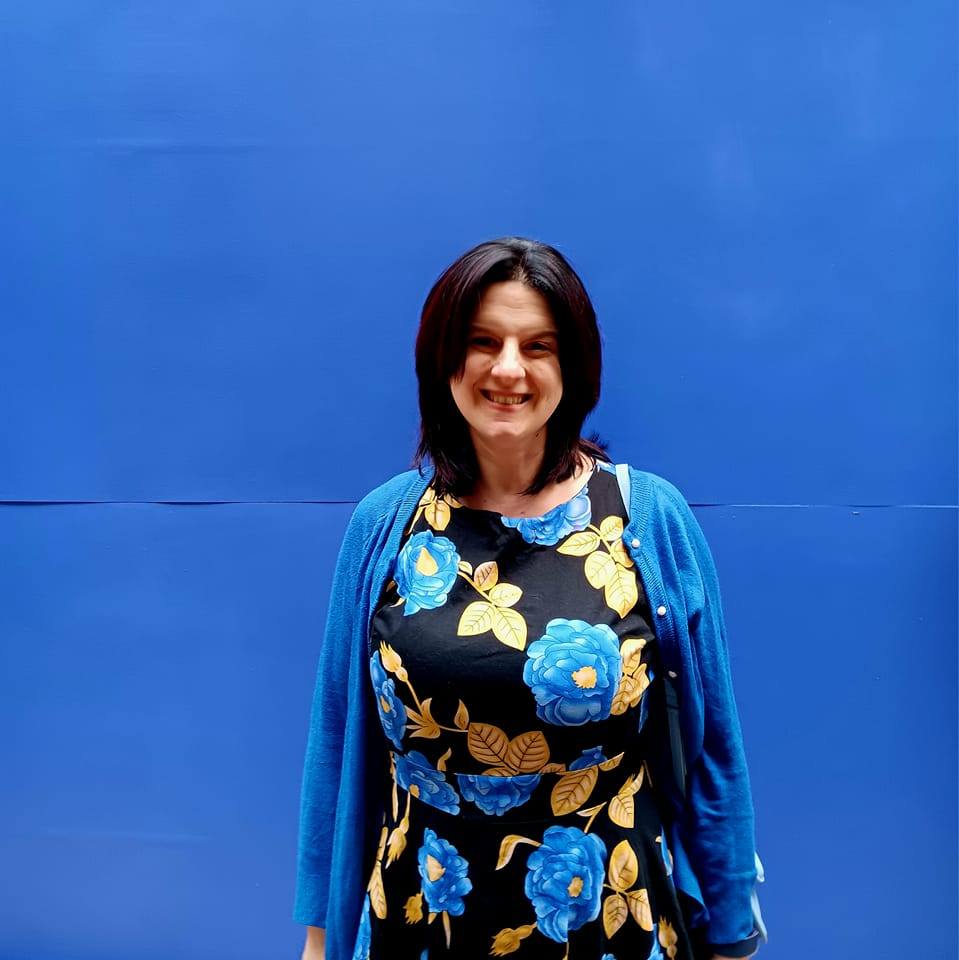
Her creativity extends beyond the written word; Michelle's photographs have graced the pages of Word Gathering Independent and Work Ready, showcasing her unique perspective and talent. In her professional life, Michelle contributes to the world of education as a paraeducator, working closely with students who have disabilities. This role not only reflects her dedication to fostering an inclusive and supportive learning environment but also her commitment to empowering the next generation.
the Spectrum of Disabilities
Physical Disabilities
Physical disabilities include conditions that impair physical functioning, such as mobility issues, visual impairments, and hearing loss. These disabilities can affect an individual's ability to perform daily tasks, navigate environments, and engage in physical activities. Technology and environmental adaptations play a key role in enhancing accessibility for individuals with physical disabilities.
Cognitive and Learning Disabilities
Cognitive and learning disabilities, such as Dyscalculia, Dyslexia, and Attention Deficit Hyperactivity Disorder (ADHD), impact learning, memory, and problem-solving skills. These conditions require tailored educational strategies and accommodations to support learning and development. Understanding these disabilities is crucial for educators and society to provide the necessary support for individuals to thrive.
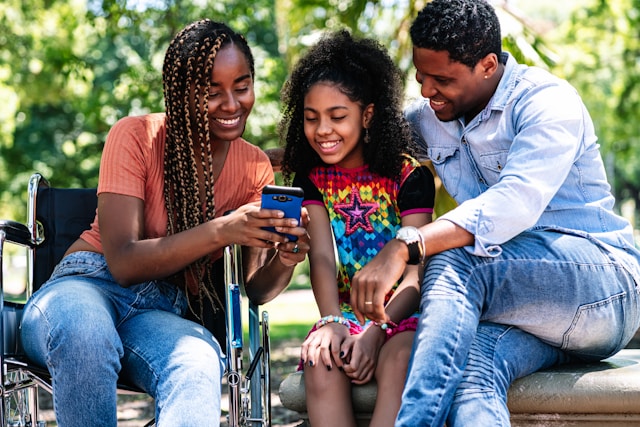
Mental Health Conditions
Mental health conditions, including anxiety disorders, depression, and bipolar disorder, can also be considered disabilities when they significantly impair daily functioning. These conditions necessitate a compassionate approach that includes access to mental health services, support networks, and accommodations in educational and workplace settings.
Navigating the World of Numbers
Dyscalculia is a learning disability that affects an individual's ability to understand numbers and perform mathematical tasks. This condition goes beyond simple math anxiety or occasional difficulty with numbers. It represents a fundamental challenge in grasping basic numerical concepts, such as counting, addition, subtraction, and even the concept of time. People with dyscalculia often struggle with tasks that require mathematical reasoning. This impacts everyday activities such as handling money, telling time, and measuring distances. This condition highlights the diverse ways in which our brains process and interpret information. And it underscores the importance of recognizing and accommodating different learning styles.
Unlike more visible disabilities, dyscalculia is often invisible, making it challenging for educators, peers, and even family members to understand the extent of the difficulty faced by those who live with it. This lack of visibility can lead to misunderstandings, frustration, and a sense of isolation for individuals with dyscalculia. It's crucial to acknowledge and address the specific needs of those with learning disabilities like dyscalculia, to ensure they truly receive the appropriate support and resources to thrive academically and in their personal lives.

The journey for individuals with dyscalculia involves navigating a world that is heavily reliant on numbers and mathematical concepts. However, with the right strategies, accommodations, and support systems in place, people with dyscalculia can achieve success and excel in various fields. Recognizing the existence and challenges of dyscalculia is the first step towards creating an inclusive environment that values diversity in learning. And it provides every individual with the opportunity to reach their full potential.
Navigating Life with Disabilities: Our Challenges and Pathways to Empowerment
Living with a disability often means we face various obstacles in our daily lives. From physical accessibility issues to navigating social perceptions. We regularly encounter barriers that hinder our access to buildings, transportation, and digital platforms. These challenges can significantly restrict our ability to participate fully in community life, pursue education, or seek employment. The push for universal design and the adoption of accessible technologies are essential steps toward dismantling these barriers. This ensures that we, regardless of our abilities, can navigate our environments more freely and independently.
Moreover, our journey is not solely defined by physical or digital accessibility. But also by the social landscape we navigate. Misconceptions and stereotypes about disabilities can lead to our exclusion and discrimination, affecting our mental health and wellbeing. It's crucial to challenge these misconceptions through awareness campaigns and inclusive education, fostering a society that values diversity and promotes social inclusion. Creating an environment where we are recognized for our abilities and potential contributes to a more equitable and empathetic community.
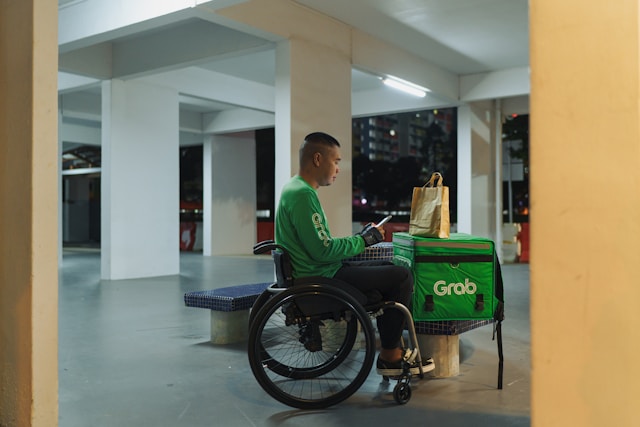
In recent years, technological advances and innovation have emerged as powerful tools for our empowerment. They can break down long-standing barriers to communication, mobility, and learning. Assistive technologies, ranging from sophisticated software to adaptive devices, have transformed the possibilities for our independence and participation. These innovations not only enhance our daily lives. But also offer a broader perspective on the potential for technology to create a more inclusive world. Through our concerted efforts in technology, advocacy, and social inclusion, we are finding new ways to lead fulfilling lives. This underlines the importance of collective action in building a more accessible and understanding society.
Embracing Ourselves: Our Path to Self-Acceptance with Disabilities
Our journey to self-acceptance, especially for those of us living with disabilities, is deeply personal and transformative. It begins with recognizing and embracing our abilities and limitations with compassion and understanding. Accepting ourselves is not about resignation to challenges. Rather, it's about acknowledging these challenges as part of a broader narrative that includes our strengths, talents, and potential. It's about seeing ourselves through a lens of kindness. This includes every aspect of our identity and our disabilities, which is integral to the unique perspectives and experiences we bring to the world.
This path towards self-acceptance is crucial in fostering a strong and positive sense of self. It lays the groundwork for building our confidence and resilience, enabling us to navigate life's complexities with a disability. Recognizing our worth and capabilities, despite the hurdles we face, empowers us to advocate for ourselves. And to seek supportive communities, and pursue our goals with determination. This journey enhances our personal wellbeing. And it enriches the lives around us, inspiring a more inclusive and understanding society.
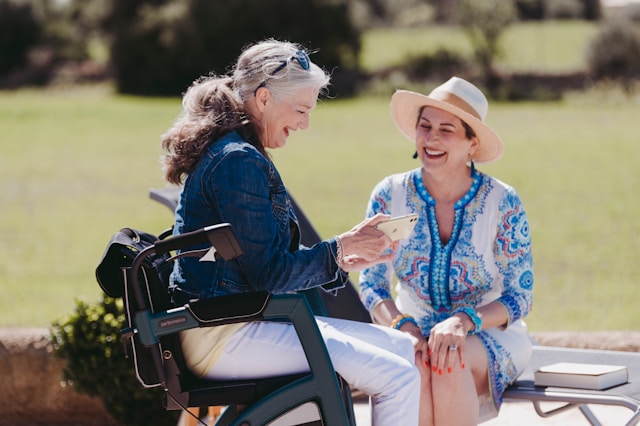
Moreover, the process of self-acceptance leads to a profound sense of identity and belonging. It encourages us to connect with others who share similar experiences, fostering a community of support and mutual understanding. Through this connection, we can share strategies for overcoming obstacles, celebrate achievements, and remind each other of our inherent value and strength. Ultimately, self-acceptance is about recognizing that our disability is part of our story, but it does not define us in entirety. It's a step towards embracing life with confidence, resilience, and an unwavering belief in our collective potential to thrive.
Strengthening Our Collective Efforts
In our quest to navigate life with disabilities, fostering an environment of inclusion and robust advocacy becomes paramount. Our commitment to advocacy and inclusion not only supports us as individuals with disabilities but also enriches our society as a whole, creating a more compassionate and understanding world. By actively promoting inclusive practices and advocating for equal opportunities, we can address and dismantle the systemic barriers we face. This section delves into key areas where our inclusion and advocacy can make a significant difference, highlighting the collective effort required to ensure that every member of our community has the chance to thrive.
Promoting Inclusive Education
Education plays a crucial role in shaping our lives as individuals with disabilities. Promoting inclusive education means ensuring that our educational systems and institutions are equipped to support the diverse needs of all students. This involves training our educators in inclusive teaching strategies, adapting curriculums to be more accessible, and providing the necessary accommodations and resources. By fostering an inclusive educational environment, we empower ourselves to achieve our full potential, laying the groundwork for a more inclusive society.
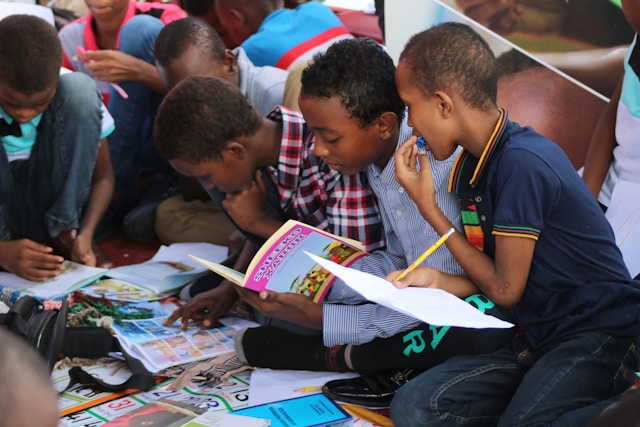
Enhancing Workplace Accessibility and Opportunities
The transition from education to employment is another critical area where our advocacy and inclusion efforts are needed. Enhancing workplace accessibility and creating more opportunities for us as people with disabilities are essential steps toward economic independence and fulfillment. This includes implementing reasonable accommodations, promoting flexible working arrangements, and ensuring that workplaces are physically accessible. Employers play a key role in this process, as they must recognize the value of diversity and the unique perspectives that we bring to the workforce.
Building Accessible Communities
An inclusive society is one where we, as individuals with disabilities, can freely access and participate in community life. Building accessible communities involves improving physical infrastructure, such as public buildings, transportation systems, and recreational facilities, to eliminate barriers to accessibility. It also means fostering a community culture that values and respects diversity, encouraging social participation and engagement. Through collaborative efforts between governments, businesses, and community organizations, we can create environments where everyone, regardless of their abilities, feels welcomed and valued.
By focusing on these key areas, we strengthen our collective effort to foster inclusion and advocate for our rights as individuals with disabilities. It's a journey that requires persistence, empathy, and collaboration, but the rewards - a society that celebrates diversity and offers equal opportunities to all - are immeasurably valuable. Together, we can work towards a future where inclusion is not just an ideal, but a reality for us all.
The TAKEAWAY
Our exploration of thriving with disabilities reveals a fundamental truth: the journey is as much about society's transformation as it is about individual resilience and empowerment. Why should this matter to each of us? Because the inclusivity and accessibility challenges we highlight are not isolated struggles; they reflect broader societal dynamics that affect us all. Recognizing and addressing these challenges is crucial not only for improving the lives of individuals with disabilities but for advancing our collective human experience. By embracing diversity and working towards inclusivity, we enrich our communities, making them more vibrant, empathetic, and just.
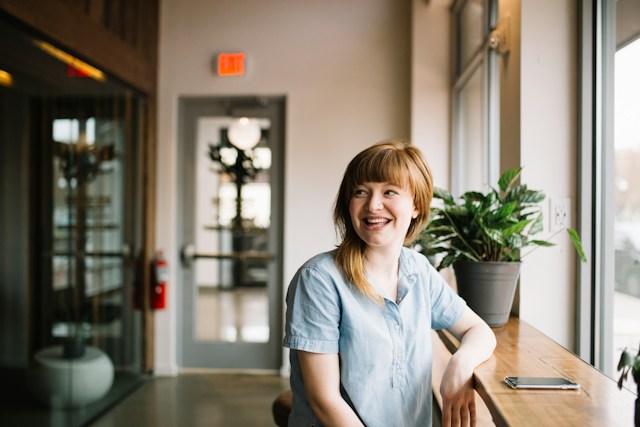
This journey underscores the profound impact of collective action and the power of community. When we come together to advocate for change, support each other's growth, and celebrate our diverse abilities, we lay the groundwork for a more inclusive future. Each effort, no matter how small, contributes to a larger movement towards equality and respect for all individuals, regardless of their abilities. It's about recognizing that inclusivity benefits everyone by creating a society where each person is valued and has the opportunity to contribute meaningfully.
Ultimately, our commitment to fostering an inclusive environment where everyone can thrive is a testament to our shared humanity. It's a call to action for each of us to consider how we can contribute to making the world a more accessible and understanding place. Whether through advocacy, education, or simply extending kindness and support to those around us, we all have a role to play.
